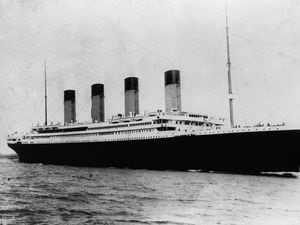Peter Rhodes on Speaker power, a movie for our time and the reader who invented the mobile phone - almost
Read today's column from Peter Rhodes.

OVER the past few days I've watched three fine movies: Trainspotting, A Room with a View and The Boy Who Harnessed the Wind. I believe the word is eclectic.
IF you get a chance, do catch The Boy Who Harnessed the Wind, which is based on a true story. In the wake of the "white saviour" row over Comic Relief, it is a timely reminder of how parts of Africa work - or rather don't work. A bright lad in a famine-stricken village realises he can build a windmill to pump water into the bone-dry earth and make the fields fruitful. But he has to do it all by himself and, even when he shows how simple it is, the authorities do not get involved. Any caring government would have picked up the windmill idea and manufactured and installed them across the country. But historically too many African leaders have not cared. They have a track record of looking after themselves, their family and their pals while the people go hungry. Not enough saviours.
WHO'D be a historian? Imagine the task faced by chroniclers 50 years from now in explaining how, after 1,000 years of democratic evolution, so much power over the biggest political issue of the early 21st century came to rest not in the hands of 650 MPs, nor even 850 Lords but with a single, self-important man whose wife's car carried the slogan: "B******s to Brexit".
ON the continuing issue of household items you didn't know you couldn't manage without, my eye was caught by the kitchen pan protector, a star of spongy material designed to slip between your pans to protect the pans underneath from those on top. See the psychology? First create a problem (the idea that pans must be protected). Then come up with the answer, and just a hint of moral blackmail. Don't you love your pans? Do you want to see them hurt ? And thus the unessential becomes must-have.
ON the 30th anniversary of the internet, I enjoyed the reader's tale from way back when he was a telephone engineer using a clip-on handset to connect to the phone wires. It struck him that one day "some bright spark would connect a small transmitter/ receiver to a standard telephone and then there would be no need for wires." His boss laughed and said he couldn't see any possible use for such a device. And the rest is history.
BUT then who can guess the future? In 1996 I found myself in Hong Kong and was amazed to step on the Star Ferry and see everybody else using a mobile. I remember thinking, in a haughty, post-colonial way, that the Hong Kongers might snap up every available techno-goodie but we Brits would be far too reserved to make endless phone calls in public. Ho, hum.
SOME years earlier, when the first cordless phones appeared, we bought a couple and were forever forgetting where we had left them in the house. That particular problem was solved with a short length of cord.





